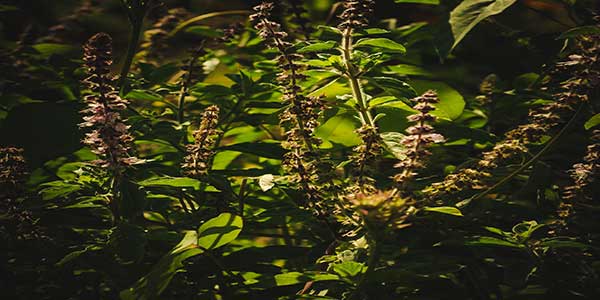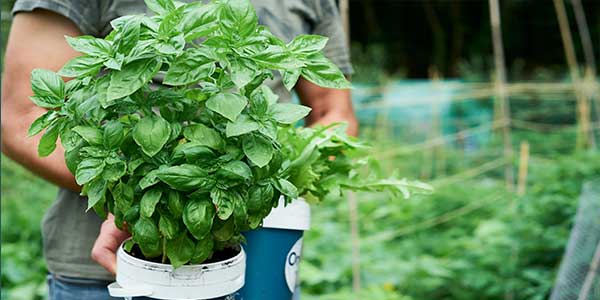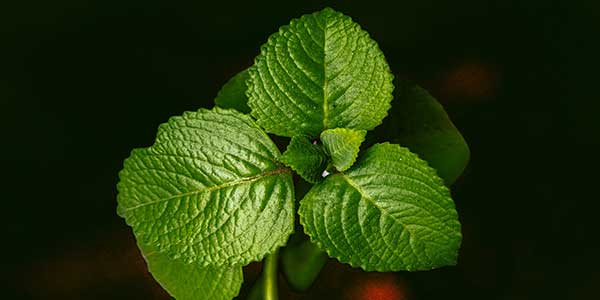Introduction
Basil, also known as Holy Basil or Tulsi, is a versatile herb that is widely used in various cuisines around the world. It is highly valued for its distinct aroma, fresh flavor, and numerous health benefits. Basil has a long history of culinary and medicinal use and is considered sacred in many cultures. In this article, we will explore the details of basil as a cooking ingredient, including its uses, qualities, origin, sources, applications, health benefits, use in cooking, how to use it, and potential side effects.
Origin and Sources
Basil is native to the tropical regions of Asia, particularly India and Southeast Asia. It has been cultivated for over 5,000 years and is highly regarded for its medicinal and spiritual properties. Today, basil is widely grown around the world and is readily available in fresh, dried, and powdered forms. It can be found in grocery stores, farmers’ markets, and can even be grown at home in herb gardens or pots.
Qualities of Basil: Basil is known for its distinct aromatic and flavorful qualities. It has a sweet, slightly peppery taste with hints of clove and anise. The fragrance of basil is fresh and herbaceous, which adds a delightful aroma to dishes. Basil leaves are vibrant green and have a slightly glossy appearance. This herb contains essential oils, vitamins, minerals, and antioxidants, contributing to its overall nutritional value.

Uses and Applications of Basil (Tulsi)
Basil is a versatile herb that can be used in various culinary applications. Here are some common uses of basil in cooking:
- Fresh Basil: Fresh basil leaves are commonly used as a garnish or ingredient in salads, sandwiches, wraps, and pasta dishes. It adds a burst of freshness and flavor to dishes, especially when added at the end of cooking to preserve its aroma.
- Pesto: Basil is a key ingredient in the classic Italian sauce called pesto. Blending fresh basil leaves with garlic, pine nuts, Parmesan cheese, and olive oil creates a vibrant and aromatic sauce that can be used on pasta, sandwiches, or as a dip.
- Soups and Stews: Basil can be added to soups, stews, and broths to enhance their flavor. It pairs well with vegetables, legumes, and meats, adding a refreshing and aromatic touch to the dish.
- Sauces and Dressings: Basil can be used to flavor sauces and dressings, such as tomato sauce, vinaigrettes, or marinades. It adds depth and complexity to the flavors, making the sauces more flavorful and enjoyable.
- Infused Oils and Vinegars: Basil can be infused into oils or vinegars to create flavorful bases for dressings, marinades, or dipping sauces. The infusion process involves steeping fresh basil leaves in oil or vinegar, allowing the flavors to meld together.
Health Benefits of Basil (Tulsi)
Basil offers numerous health benefits due to its unique composition of vitamins, minerals, and antioxidants. Here are some potential health benefits associated with consuming basil:
- Antioxidant Properties: Basil contains various antioxidants, such as flavonoids and phenolic compounds, that help protect the body against cellular damage caused by free radicals. These antioxidants can contribute to overall health and may have potential anti-aging effects.
- Anti-inflammatory Effects: Basil has been found to possess anti-inflammatory properties. The essential oils present in basil, such as eugenol, can help reduce inflammation in the body. Chronic inflammation has been linked to various health conditions, so consuming basil may support overall well-being.
- Digestive Health: Basil is known to have digestive benefits. It can help stimulate the appetite, support healthy digestion, and alleviate symptoms of indigestion, bloating, and gas.
- Immune System Support: Basil is rich in vitamins A and C, which are essential for a healthy immune system. These vitamins help strengthen the immune system, protect against infections, and promote overall well-being.
- Stress Relief: Basil is considered an adaptogenic herb, which means it can help the body adapt to stress and promote balance. Consuming basil or drinking basil tea may help reduce stress, anxiety, and promote relaxation.

Basil’s Use in Cooking
Basil can be used in various forms in cooking, depending on the desired dish and flavor profile. Here are some tips on using basil:
- Fresh Basil: Fresh basil is best used raw or added towards the end of cooking to preserve its flavor and aroma. It can be torn or chopped and added to salads, sandwiches, pasta, or sprinkled over pizzas.
- Dried Basil: Dried basil can be used when fresh basil is not available. However, dried basil has a more concentrated flavor, so a smaller quantity should be used. It is commonly used in sauces, soups, and stews.
- Infused Oil: Basil-infused oil can be drizzled over salads, roasted vegetables, or used as a dipping sauce for bread. It adds a subtle basil flavor and enhances the overall taste of the dish.
- Basil Tea: Basil leaves can be steeped in hot water to make a soothing and aromatic tea. Simply add a handful of fresh basil leaves to a cup of boiling water, let it steep for a few minutes, strain, and enjoy.
Side Effects and Precautions of Basil (Tulsi)
Basil is generally safe for most people when consumed in moderate amounts. However, some individuals may be allergic to basil or may experience skin irritation when in direct contact with the leaves. It is always recommended to introduce new foods gradually and observe any potential adverse reactions.
Additionally, individuals who are on blood-thinning medications should exercise caution when consuming basil, as it may have mild anticoagulant properties. It is advisable to consult with a healthcare professional if you have any specific concerns or are taking medications.

Basil in Hinduism
Basil, also known as Tulsi, holds significant religious and cultural importance in Hinduism. The worship of the basil tree is deeply rooted in Hindu traditions and is associated with several mythological and spiritual beliefs. Here are some reasons why Hindus worship the basil tree:
Sacred Plant: Basil is considered a sacred plant in Hinduism. It is believed to be an incarnation of the goddess Tulsi, who is revered as a symbol of purity, protection, and divine energy. Worshiping the basil tree is a way of honoring and seeking blessings from the goddess.
Spiritual Significance: Basil is believed to possess spiritual and medicinal properties. It is regarded as a plant that promotes spiritual growth, positive energy, and inner peace. Hindus believe that the presence of a basil plant in the home brings harmony, good luck, and spiritual protection.
Purification and Cleansing: Basil is associated with purification rituals in Hinduism. It is believed that lighting a lamp near the basil plant in the evening helps cleanse the surroundings and ward off negative energies. The fragrance of basil is considered to have a purifying effect on the mind and body.
Medicinal Properties: Basil has been used in Ayurvedic medicine for its therapeutic properties. It is known for its antibacterial, anti-inflammatory, and antioxidant effects. Hindus believe that the presence of the basil plant in their surroundings can help purify the air and prevent diseases.
Ritual Offerings: Basil leaves are commonly used as offerings in Hindu rituals and ceremonies. The leaves are considered sacred and are offered to deities during prayers and religious rituals. The act of offering basil leaves is seen as a gesture of devotion and gratitude towards the divine.
Festivals and Celebrations: Basil plays a significant role in Hindu festivals and celebrations. During auspicious occasions like Diwali and Navratri, basil plants are adorned with flowers, garlands, and colored powders. Devotees may also tie sacred threads around the basil plant as a symbol of protection and blessings.
Symbol of Love and Fidelity: Basil is considered a symbol of love and marital fidelity in Hindu culture. It is believed that growing a basil plant in the household brings harmony and strengthens the bond between couples. Basil leaves are often used in wedding ceremonies and rituals to invoke blessings for a happy and prosperous married life.
Overall, the worship of the basil tree in Hinduism is a way for devotees to express their reverence, seek blessings, and connect with the divine energy associated with the goddess Tulsi. It is deeply ingrained in Hindu traditions, symbolizing purity, protection, spiritual growth, and well-being. The worship of the basil tree is a cherished practice that holds great cultural and religious significance in Hindu communities.
Conclusion
Basil, also known as Holy Basil or Tulsi, is a versatile herb that adds flavor, aroma, and numerous health benefits to dishes. It is used in various cuisines around the world and offers a range of culinary possibilities. Basil’s qualities, such as its distinct taste and aroma, make it a valuable ingredient in salads, pasta dishes, sauces, and more. Moreover, it provides potential health benefits, including antioxidant properties, anti-inflammatory effects, digestive health support, immune system support, and stress relief.
Whether using fresh basil, dried basil, or basil-infused oil, incorporating basil into your cooking can enhance the flavor profile of your dishes and offer potential health benefits. Remember to use basil in moderation, be mindful of any potential allergies or sensitivities, and consult with a healthcare professional if needed. By harnessing the power of basil in your culinary creations, you can enjoy its unique flavor and reap the rewards it has to offer.